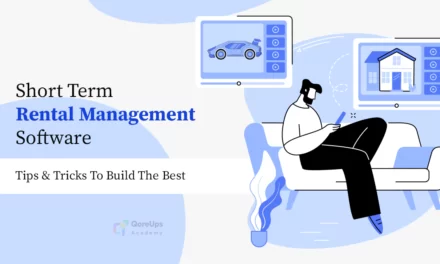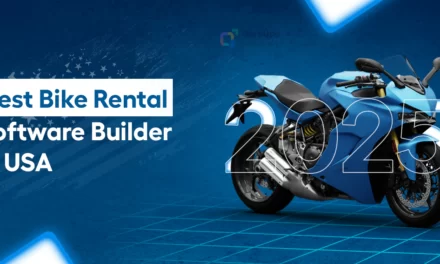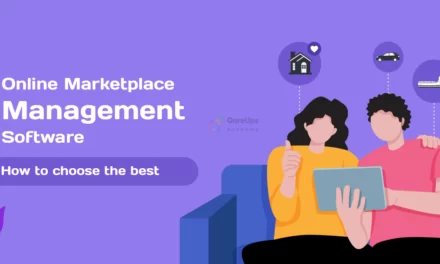The rental industry is undergoing a significant transformation driven by technological advancements and changing consumer expectations.
Whether you’re in the business of renting vacation properties, event spaces, equipment, or vehicles, staying competitive requires more than just offering a great product or service.
It demands efficient management, seamless customer experiences, and data-driven decision-making.
This is where rental booking software emerges as a game-changer, offering a plethora of benefits to streamline operations. Also, enhances customer satisfaction, and drives profitability.
In this comprehensive guide, we’ll delve deep into the world of rental booking software. We’ll explore its myriad advantages, key features, implementation strategies, and real-world case studies.
From understanding the evolution of booking software to exploring future trends and innovations, we’ll equip you with the knowledge and insights you need to transform your rental business and thrive in today’s dynamic market landscape.
The Evolution of Rental Booking Software
The journey of rental booking software traces back to the early days of pen-and-paper reservations and manual record-keeping.
As technology advanced, so did the needs of rental marketplace businesses.
Today, modern booking software solutions offer a comprehensive suite of features designed to automate processes, streamline workflows, and drive efficiency.
From basic reservation systems to sophisticated SaaS platforms, rental booking software has revolutionized the way rental businesses operate.
What Is A Rental Booking Software?
Rental booking software is a specialized tool designed to help businesses manage the process of renting out equipment, properties, vehicles, or other items.
This software typically includes features facilitating online bookings, inventory management, scheduling, payment processing, customer relationship management, and reporting.
It is commonly used by businesses such as equipment rental companies, vacation rental agencies, vehicle rental services, event rental companies, and more.
It streamlines operations, improves customer experience, and helps maximize the utilization of rental assets.

Benefits of Rental Booking Software
- Efficiency and Time Savings:
- Automation of booking processes eliminates the need for manual intervention, saving time and reducing errors.
- Streamlined workflows enable staff to focus on core tasks rather than administrative duties, leading to increased productivity and operational efficiency.
- Enhanced Customer Experience:
- Rental booking software offers convenience and accessibility to customers. By allowing them to browse available rentals, check availability, and make reservations at their convenience.
- Automated confirmations, reminders, and communication tools ensure a seamless and personalized experience for clients, enhancing customer satisfaction and loyalty.
- Optimized Resource Management:
- Real-time visibility into inventory availability, bookings, and resource utilization allows for better resource allocation and optimization.
- Calendar management features provide a centralized view of upcoming reservations, enabling proactive planning and scheduling to maximize asset utilization and revenue generation.
- Secure Payment Processing:
- Integrated payment gateways facilitate secure online transactions, reducing the risk of fraud and ensuring timely payments.
- Support for multiple payment methods and currencies enhances flexibility and convenience for customers. This also improves the overall payment experience and reduces friction in the booking process.
- Data-Driven Insights:
- Robust reporting and analytics tools provide valuable insights into business performance, including occupancy rates, revenue trends, and customer demographics.
- Data-driven decision-making enables businesses to identify growth opportunities, optimize pricing strategies, and refine marketing efforts to attract and retain customers effectively.

Key Features to Look For In A Rental Booking Software
- Online Booking Portal:
- Intuitive and user-friendly interface for customers to browse available rentals, check availability, and make reservations online.
- Customizable booking forms capture relevant information from customers and streamline the booking process, improving user experience and conversion rates.
- Calendar Management:
- Interactive calendar view displaying bookings, availability, and events, allowing for easy scheduling and resource planning.
- Drag-and-drop functionality for quick and intuitive reservation management, enabling staff to efficiently manage bookings and avoid scheduling conflicts.
- Inventory Tracking:
- Real-time inventory management in the rental booking software capabilities to track quantities, locations, and statuses of rental assets.
- Barcode scanning or RFID technology integration for efficient inventory tracking and management, reducing errors and improving inventory accuracy.
- Payment Processing:
- Secure payment gateway integration to accept online payments via credit/debit cards, e-wallets, or other payment methods.
- Automated invoicing and billing functionality to generate and send invoices to customers seamlessly, reducing administrative overhead and improving cash flow management.
- Reporting and Analytics:
- Comprehensive reporting dashboard with customizable reports and dashboards to track rental marketplace metrics.
- Advanced analytics tools for trend analysis, forecasting, and benchmarking against industry standards, enabling businesses to make data-driven decisions and optimize operations.

Implementation and Integration Strategies
Implementing rental booking software involves several steps, including software selection, configuration, training, and integration with existing systems.
It’s essential to choose a rental software solution that aligns with your business requirements and offers scalability for future growth.
Also, integration with other business systems, such as accounting software, CMS platforms, and marketing automation tools, can further enhance efficiency and streamline operations.
APIs and third-party integrations enable seamless data exchange between different systems, ensuring a unified and cohesive workflow.
Top 10 Rental Booking Software For Your Business
Choosing the right rental booking software is crucial for streamlining your operations, improving customer experience, and maximizing efficiency.
Let’s have a quick look at the top 10 rental booking software solutions you should consider for your business.
Rentle
- Overview: Rentle offers an easy-to-use platform for equipment rental businesses, including online booking, inventory management, and integrated payment processing.
- Key Features: Customizable booking pages, inventory tracking, automated notifications.
- Best For: Equipment rental businesses of all sizes.
QMarket
- Overview: QMarket is a versatile rental booking software designed to cater to a wide range of rental businesses, offering comprehensive management tools for online bookings, inventory, and customer interactions.
- Key Features: Multi-channel booking, real-time inventory management, automated invoicing, and reporting.
- Best For: Rental businesses looking for a flexible, scalable solution that integrates with multiple channels and platforms.
Checkfront
- Overview: Checkfront is a robust booking management system designed for tour operators and rental companies, offering features like automated booking confirmations and real-time availability.
- Key Features: Integrated payments, inventory management, calendar syncing.
- Best For: Tours, activities, and rental companies.
Booqable
- Overview: Booqable is a user-friendly rental management software that helps you manage online bookings, inventory, and payments in one place.
- Key Features: Online bookings, inventory management, invoicing, and payment processing.
- Best For: Equipment rental businesses looking for simplicity and efficiency.
EZRentOut
- Overview: EZRentOut is designed to manage rental operations with features like asset tracking, POS integration, and invoicing.
- Key Features: Asset tracking, maintenance scheduling, barcoding.
- Best For: Companies with extensive equipment rental needs.
Rentopian
- Overview: Rentopian is an all-in-one event rental management software that simplifies booking, inventory management, and payments.
- Key Features: Real-time inventory tracking, online booking, digital contracts.
- Best For: Event rental businesses.
Rental360
- Overview: Rental360 provides a comprehensive solution for managing rentals with features like contract management, billing, and inventory control.
- Key Features: Contract management, billing, inventory tracking.
- Best For: Businesses with complex rental needs.
BookingKoala
- Overview: BookingKoala is a booking and management software tailored for service-based businesses, including rental companies.
- Key Features: Customizable booking pages, CRM, online payments.
- Best For: Small to medium-sized rental businesses.
HQ Rental Software
- Overview: HQ Rental Software is designed for vehicle rental businesses, offering features like fleet management and customer relationship management (CRM).
- Key Features: Fleet management, CRM, online booking.
- Best For: Car, van, and bike rental businesses.
Rentrax
- Overview: Rentrax is a cloud-based rental management software that offers online booking, inventory management, and customer management.
- Key Features: Real-time availability, inventory tracking, customer management.
- Best For: Sports equipment and party rental businesses.
Choose The Right Rental Booking Software For Your Business
Selecting the right rental booking software is a crucial decision that can impact your business’s efficiency and growth. Here’s how to choose the best one for your needs:
Assess Your Needs
Identify the specific features your business requires. For example, do you need online booking, inventory tracking, or integration with other systems? This step ensures that the software aligns with your operational needs.
Ease of Use
Look for software that is user-friendly for both your staff and customers. A steep learning curve can lead to frustration and inefficiencies. Ensure that the interface is intuitive, and the features are easy to navigate.
Scalability
Choose software that can grow with your business. As your company expands, you’ll need a solution that can handle increased bookings, more inventory, and additional locations. Ensure the software can scale without requiring a complete system overhaul.
Integration Capabilities
Your rental booking software should integrate seamlessly with your existing tools, such as accounting software, payment processors, and CRM systems. This integration ensures smooth operations and reduces the need for manual data entry.
Customization
Opt for rental booking software that allows customization to suit your specific business needs. Whether it’s branding your booking pages or setting unique pricing rules, customization can help the software fit perfectly with your operations.
Support and Training
Good customer support and training options are essential, especially during the initial setup phase. Look for providers that offer comprehensive training resources, responsive support teams, and ongoing assistance as needed.
Cost
Compare pricing plans of various providers to find a solution that fits your budget. Be mindful of any hidden fees or additional charges for features like extra users, storage, or integrations. Ensure the pricing structure is transparent and offers good value for your investment.
Reviews and Reputation
Analyze customer reviews and assess the reputation of the software provider. Focus on feedback regarding reliability, user-friendliness, and the quality of customer support. A well-regarded software provider with positive reviews is likely to be a safer choice.
Trial or Demo
Before making a final decision, make sure to utilize free trials or demos provided by the rental booking software vendors. This hands-on experience will help you evaluate the software’s usability, features, and overall fit for your business.

Real-World Case Studies and Success Stories
Airbnb is a prime example of how rental booking software has revolutionized the hospitality industry and transformed the way people travel and book accommodations.
Founded in 2008, Airbnb started as a platform for individuals to rent out spare rooms or properties to travelers, offering a unique alternative to traditional hotels.
Evolution
What began as a small-scale experiment quickly evolved into a global phenomenon, with Airbnb expanding its platform to include a diverse range of rental properties, from apartments and houses to treehouses, castles, and even private islands.
The platform’s user-friendly interface and innovative features, such as detailed property listings, verified user profiles, and secure payment processing, have contributed to its widespread adoption and success.
Impact
Airbnb has had a profound impact on the travel industry, empowering hosts to monetize their properties and providing travelers with unique and personalized experiences.
By connecting hosts directly with guests, Airbnb has democratized travel, enabling people to explore new destinations, immerse themselves in local cultures, and forge meaningful connections with hosts and fellow travelers.
In summary, Airbnb serves as a compelling example of how rental marketplace software has reshaped the travel and hospitality landscape.
Also, empowering hosts, delighting guests, and fostering a global community of travelers and adventurers.
Future Trends and Innovations
Looking ahead, the future of rental booking software is brimming with exciting possibilities.
Emerging technologies such as artificial intelligence, machine learning, and the Internet of Things (IoT) are poised to revolutionize the rental industry, offering predictive analytics, dynamic pricing, and smart inventory management capabilities.
By embracing these innovations, rental businesses can stay ahead of the curve and leverage technology to drive innovation, improve efficiency, and enhance customer experiences.
In Conclusion
Rental booking software is a powerful tool that can transform the way rental businesses operate, from streamlining processes and enhancing customer experiences to driving profitability and growth.
By investing in the right rental marketplace software solution and embracing technological advancements, rental businesses can stay ahead of the curve and thrive in today’s competitive market landscape.
So, whether you’re managing vacation rentals, event spaces, equipment, or any other rental assets, consider harnessing the power of booking software to unlock new levels of efficiency, innovation, and success.
The future of rental booking software starts here!






